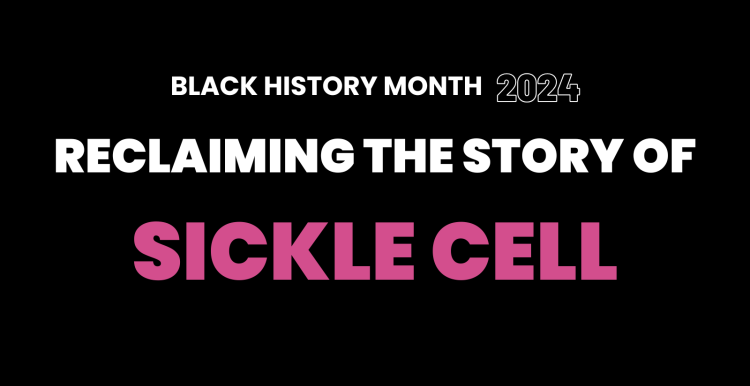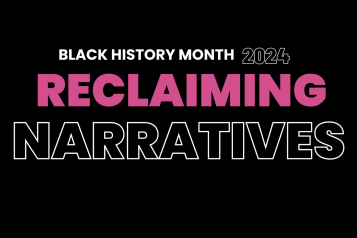Changing the sickle cell narrative: uncovering uncomfortable truths

Effia, 21, was diagnosed with Sickle Cell anaemia when she was just three months old. Throughout her childhood, Effia learnt to skilfully manage her symptoms, appearing to others to be leading a normal, healthy life. “I’ve had this condition my whole life, but I don’t let it stop me. You just have to keep going, even when it’s hard.”
But on days when her symptoms flare up, Effia is bed-bound, with immense pain and fatigue.
I know when it’s coming. My legs start to hurt, then my arms, and I get a tight feeling in my chest. Sometimes I get pain that I can’t explain.
Pain crises are a common symptom of sickle cell anaemia, and can last anywhere from a few hours to a few weeks. For some people, pain crises can be so severe that they require hospital stays.
For Effia, hospital stays were frequent throughout her childhood. “I missed a lot of school because I was in the hospital,” Effia recalls. “I’d come back and be so far behind everyone else. It was hard to catch up, and I felt like I was always struggling”.
Effia had been under the care of Queen Elizabeth Hospital for years, relying on them for rapid IVs and transfusions when experiencing a crisis. However, reflecting on these years, Effia is struck by memories of poor care.“I remember once needing an IV drip, but the hospital didn’t have one available. I then experienced another crisis a week later. When I went to get treatment for this crisis, the doctor didn’t know what my case was. It seemed like he thought I was faking my pain”.
For many sickle cell patients, this experience is all too common. Their pleas for support are often met with puzzlement by clinicians, and requests for medication to help with pain are met with scepticism. It is a constant cycle of not being believed, underpinned by experiences of discrimination, stigma and racism that make getting care simply traumatic.
Confronted by the prospect of more years of poor care, Effia moved her treatment to Kings College Hospital in 2022. She had heard good things about their specialist sickle cell team. “At King’s, they have a whole department dedicated to blood diseases. They have six nurses, three for sickle cell, doctors, and a therapist. They understand my condition better.” And for the first time in years, Effia felt listened to and prioritised.
The doctor asks me about my mental health and other problems I’m facing. It’s not just about the physical symptoms; they care about me as a person and how I’m feeling.
Effia’s experience, whilst a positive outcome, is a reminder of the challenges Black people with sickle cell face trying to get the care they need.“The main problem is nobody believes us, because sickle cell, it’s mostly from Sub-Saharan Africa, and the demographic is mostly Black people. People think that we don’t experience pain” she continues, “…Black people are not really taken seriously when they're in pain, especially Black women".
Years of funding favouritism have left many conditions like sickle cell, a condition which disproportionately impacts Black people, under-researched and under-prioritised. This has placed the burden on sickle cell patients to fight for care.
There is a lack of research and proper treatment. For some people, like me, treatments like hydroxyurea don’t work, and they have to deal with repeated crises while struggling to convince medical professionals of their pain.
Effia’s experience highlights how health inequality intersects with racial and economic inequality. Medications needed to treat sickle cell – a life-long condition - are not free on the NHS. “We are not on the list to get free medication. So I have to pay like £20 just to get a basic supply… When you're Black and living in a deprived area, it feels like you're not as important because you come from a certain background".
Effia’s story is not just her own; it reflects the health inequalities that affect sickle cell patients. Her experience highlights a system that is often unprepared, always underfunded, and sometimes indifferent to the needs of those living with sickle cell. Effia’s fight for proper care should not be the norm—it should be the exception.
